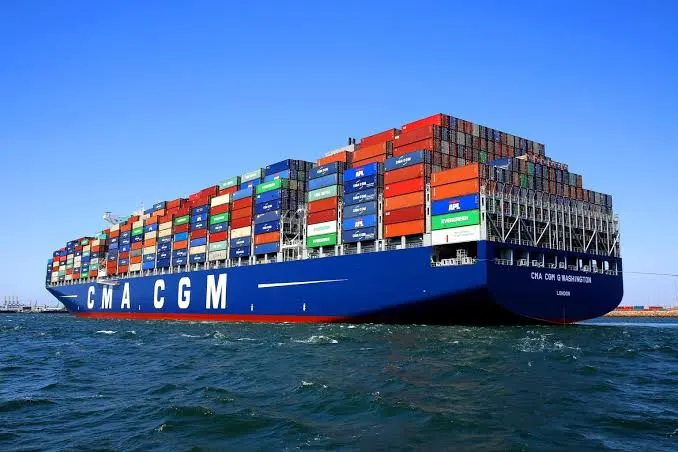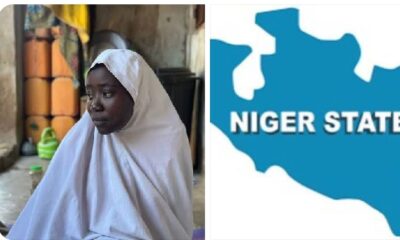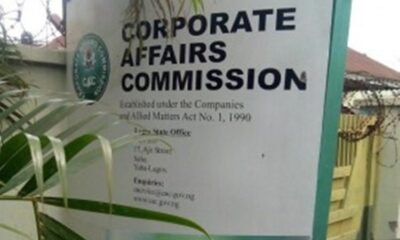Breaking News
BREAKING: Federal Government Frets Over Unfair War Risk Insurance Surcharges In Nigeria

The Minister of Marine and Blue Economy, Adegboyega Oyetola, has called for the removal of unfair war risk insurance surcharges imposed on vessels calling at Nigerian ports.
He called for the elimination of war risk insurance premiums imposed on vessels heading to Nigeria, describing the charges as outdated and harmful to the country’s economic competitiveness.
The minister made the call during the third Annual Maritime Lecture of the Maritime Reporters Association of Nigeria (MARAN) on “Burden of War Risk Insurance Surcharge on Nigerian Maritime Trade – A Case for Review,” saying that it reflected a critical concern shared by industry stakeholders, government agencies, and economic actors.
Represented by his Special Adviser on Media and Communications, Dr. Bolaji Akinola, the minister said that Nigeria had earned the right to be removed from global maritime high-risk classifications.
Oyetola lamented that Nigeria still bears the cost of war risk insurance charges, which had cost the country an estimated $1.5 billion in recent years, noting that the premiums were based on outdated perceptions despite that Nigeria had recorded zero piracy incidents in the last four years, thanks to enhanced security under the Deep Blue Project.
The minister explained that the Deep Blue Project, implemented by the Nigerian Maritime Administration and Safety Agency (NIMASA) in partnership with the Nigerian Navy, had delivered real-time surveillance and interdiction through integrated air, land, and sea assets.
This success has earned Nigeria global recognition, including commendations from the International Maritime Organisation and removal from the International Bargaining Forum’s high-risk list.
Oyetola assured stakeholders that the ministry was engaging international bodies, including Baltic and International Maritime Council (BIMCO), the International Chamber of Shipping, and Lloyd’s of London, to present data-driven evidence of improved maritime security. He also revealed plans to strengthen local marine insurance options, deepen regional cooperation, and maintain robust security reporting.
Oyetola highlighted key achievements of the ministry since its establishment in 2023, noting that the maritime sector has witnessed major reforms in just two years. Among these milestones are the resolution of the decades-long Apapa gridlock, the launch of Africa’s first National Policy on Marine and Blue Economy, and the approval of port modernisation projects for Lagos, Tin Can Island, and the Eastern Ports.
According to him, agency-generated revenues more than doubled from ₦700.79 billion in 2023 to ₦1.39 trillion in 2024, marking the highest in the nation’s history.
Other initiatives include unlocking the Cabotage Vessel Financing Fund to support indigenous shipowners, setting up a technical committee for a private-sector-led national shipping line, and implementing reforms to boost aquaculture and inland waterway safety.
Also, the Executive Secretary of the Nigerian Shippers’ Council (NSC), Dr Pius Akutah, called for a review and removal of war risk insurance surcharges imposed on vessels calling at Nigerian ports.
Despite remarkable progress in maritime security, he noted that Nigeria had remained unfairly classified as a high-risk shipping zone, attracting exorbitant war risk insurance premiums and surcharges, adding that the council had consistently called for a review and removal of this war risk insurance surcharge, believing that it is no longer justifiable given the improved security metrics and Nigeria’s demonstrable commitment to safe shipping.
Akutah stressed that the council was working towards engaging with international underwriters, Lloyd’s Market Association, and P&I clubs, to advocate for a data-driven reassessment of the risk status of Nigerian waters.b
-

 Breaking News5 months ago
Breaking News5 months agoBREAKING NEWS: Labour Congress Call For Review Of Minimum Wage, Propose N150,000 Pay For Lagos Workers
-

 Entertainment5 months ago
Entertainment5 months agoBurna Boy Used To Squat In My House – Cubana Chief Priest
-

 Breaking News5 months ago
Breaking News5 months agoALLEGED BLASPHEMY: Angry Youths Kill Female Food Seller In Niger State
-

 Entertainment5 months ago
Entertainment5 months agoBBNaija S10: I Was Prevented From Returning To Show Despite Being Medically Fit – Sabrina
-

 Entertainment5 months ago
Entertainment5 months agoPopular Nigerian Comedian, Josh2Funny And Wife, Bina, Welcome Third Son
-

 Entertainment5 months ago
Entertainment5 months ago[VIDEO] Ibom Air Incident: Comfort Emmanson Opens Up on Traumatic Experience
-

 Breaking News5 months ago
Breaking News5 months agoBREAKING: CAC Extends New Fee Regime To October 1
-

 Entertainment5 months ago
Entertainment5 months agoMedia Personality Toke Makinwa Make Confession On Fearful Pregnancy Journey, Shares Fresh Maternity Shoot
-

 Breaking News5 months ago
Breaking News5 months agoBREAKING: 1 Israeli Soldier Dead, 9 Injured, 4 Missing
-

 Politics5 months ago
Politics5 months agoSoludo Mocks Obi, Declares ADC and LP “Dead” After Anambra By-elections
-

 Breaking News5 months ago
Breaking News5 months agoBukuyum: Air Operations Force Bandits To Release 70 Kidnapped Victims In Zamfara
-

 Breaking News5 months ago
Breaking News5 months agoBREAKING: Hamas Captures Israeli Soldiers in Gaza
